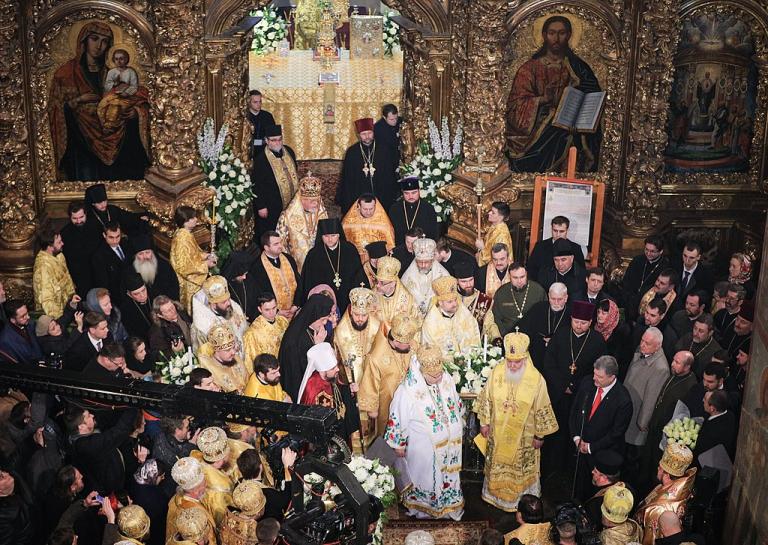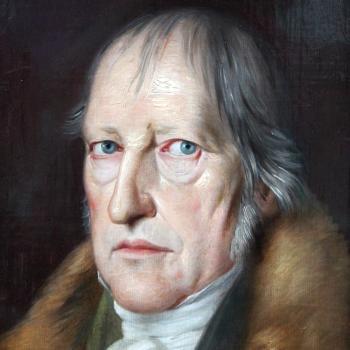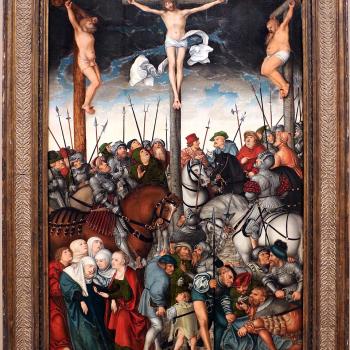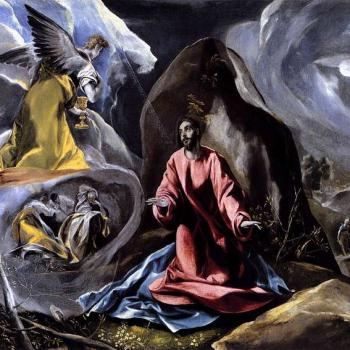Eastern Orthodox theologians from around the world met in Greece last week to take up a “Nicene-sized” problem that is afflicting this major branch of Christianity–and, I would add, the other branches of Christianity as well: the heresy of ethno-phyletism, the conflation of the Church with a nation or ethnic group.
This heresy, sometimes just called “phyletism” from the Greek word for “tribe,” was first defined and condemned by an Orthodox council in 1872. It has become an issue now with the war between Russia and Ukraine.
As explained by Meagan Saliashvili in a Religion New Service story on the conference,
At the root of the Russia-Ukraine split is a theological heresy called ethno-phyletism that conflates church and nation, Ambrosios argued. The practice of applying church governance based on ethnicity, nationality or culture rather than geography, the metropolitan said, is “nothing less than the greatest danger to the Orthodox unity of the church.”
The effects of ethno-phyletism often lead to church members excluding Christians who don’t match their particular ethnic identity, however subtly, or to elevating nationality over faith.
This also, of course, bears on what Catholics are dealing with, in Integralism, and what Protestants are dealing with, in Christian nationalism.
What the Orthodox are wrestling with also has to do with cultural issues, not unlike American Lutherans who historically were divided along ethnic lines, with German, Norwegian, Swedish, and Slovak Lutherans all going their separate ways. Which created problems for generic English-speaking Americans who wanted to be Lutheran but weren’t members of the church’s ethnic group.
But the Church is supposed to be “catholic” and universal, “a great multitude that no one could number, from every nation, from all tribes and peoples and languages” (Revelation 7:9).
In this gathering of some 400 scholars from 44 countries in Volos, Greece, called a “Mega-Conference of the International Orthodox Theological Association,” speakers criticized the Russian church, which was in attendance, but also the Ukrainian church for conflating Christianity with nationalism and fomenting the war. Saliashvili quotes the keynote speaker:
The conference’s keynote speaker, Metropolitan Ambrosios (Zografos) of Korea and Exarch of Japan, a bishop of the Ecumenical Patriarch of Constantinople, told the assembly Wednesday evening that the various branches of Orthodox Christianity had fomented a heresy by taking sides in the war, calling it “an unspeakable travesty” that as a result, “most Orthodox leaders have failed to condemn this diabolical war unequivocally.
“We cannot even say, ‘Well this is a war driven by politicians. Our churches are against it,’” Ambrosios said, “because so few of our church leaders have actually taken a public anti-war stance.”
But for Orthodoxy, ethno-phylatism is also a confusion of church polity. Jurisdictions are supposed to be regional and geographic. But in practice, as Orthodoxy has spread out of its traditional strongholds, the jurisdictions are based on ethnicity, with multiple orthodox “denominations,” so to speak within one country.
Thus, in the United States, there are Greek, Serbian, Antiochian, and Russian Orthodox churches. Theoretically, there should only be one American church body. The Orthodox Church in America was founded by Russians and was granted “autocephaly” or self-governing status, but this is not recognized by some of the non-Russian groups, and the other ethnic-based jurisdictions remain. Similar multiplications of jurisdictions are to be found in Western Europe and, due to various churches’ missionary efforts, in Africa.
All of this is in contrast to the clear organizational charts of the Catholics and to the congregational focus of most Protestants. For Lutherans, doctrine–not polity–is what delineates a church, and the Orthodox seem to mostly have doctrinal agreement despite their divisions.
But, at this moment in history, ethno-phylatism is a problem for all churches. At least the Orthodox have defined it as a heresy, even as they struggle to sort out what to do about it.
Photo: Participation in the liturgy and enthronement of the Primate of the Orthodox Church of Ukraine (2019-02-03) via President.gov.ua, CC BY 4.0 <https://creativecommons.org/licenses/by/4.0>, via Wikimedia Commons
















